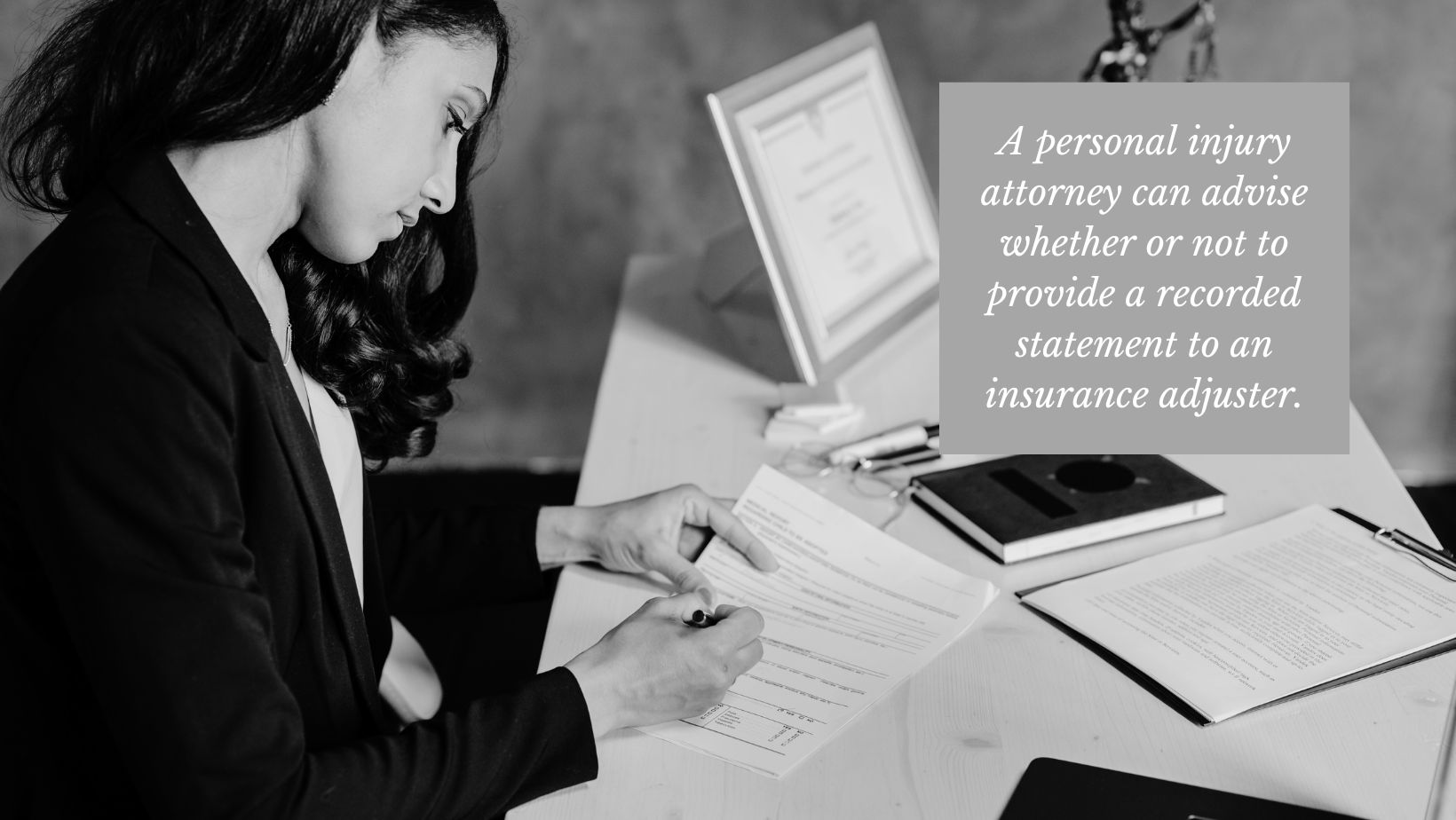At some point after a personal injury claim, an insurance adjuster will likely contact the victim with questions about the incident. They may request a recorded statement.
While it is important for an injured person to tell their side of the story when seeking compensation, they need to be cautious about what they say, how they say it, and even when they agree to talk. The recording becomes an official record of events that an insurance adjuster will use to determine liability and assess a dollar amount for damages. With so much riding on the victim’s words, it is crucial to prepare for a recorded statement.
Can You Avoid Giving a Recorded Statement?
It’s understandable to be reluctant about giving a recorded statement. Victims may worry that they will say something wrong or get confused, and an insurance adjuster might use those comments to deny their claim.
The good news is that in most states, including New Mexico and Texas, there is no legal obligation to make a recorded statement. The insurance company will still need to hear everyone’s recollection of the accident, but often a written statement is sufficient instead of a recording.
Have a Lawyer Deal With Insurance Adjusters
A personal injury attorney can advise whether or not to provide a recorded statement to an insurance adjuster. It is rarely in a victim’s best interest to do so, but in some instances, it might strengthen a victim’s case or speed up the claims process. Without a compelling reason, most attorneys tell victims to say no.
The lawyer can deal with turning down the request (or negotiating the best time and place if there is a reason to agree) so the injured party can avoid any pressure tactics the insurance adjuster might use. They can help their client draft a written document covering all of the relevant details of the incident in place of a recording.
While avoiding a recorded statement is possible, there will be a deposition if the claim is not resolved and the attorney files a lawsuit. Depositions are sworn testimony by witnesses (including the victim) and are either electronically recorded, or taken down word-for-word by a stenographer. And if the case goes to trial, the victim will need to testify in front of a judge and jury. A personal injury attorney will be by the victim’s side every step of the way.
How to Prepare for a Recorded Statement
Whether with an insurance adjuster or for a deposition, preparation is key. At Kane Personal Injury, we like our clients to feel confident when they go into a recorded statement, and preparing helps. We advise them to prepare and put some thought into the facts of what happened.
Following are tips on how to do this effectively:
1. Choose the Right Time
Insurance adjusters and the at-fault driver’s attorney may reach out immediately. Don’t be pressured into giving a recorded statement until you are ready. The statute of limitations allows two years in Texas and three years in New Mexico. If you are in the hospital, in pain, on medication, or otherwise stressed, it is perfectly acceptable to hold off. And if the injured person is a minor, do not let them talk to anyone without legal representation.
2. Don’t Forget the Basics
Recorded interviews often begin with basic information. Take some time to consider things such as where you live, for how long you’ve lived there, what you do for a living, and who you live with. These might seem like simple questions to answer, but people get caught off guard and fumble them when they are nervous. This can cause additional anxiety in an already stressful situation.
3. Review the Incident Timeline
Go over exactly what happened from your perspective. It is helpful to write out a general timeline as you remember it so that when asked, you can give a clear account of the event in chronological order. Your notes should not be a script that you memorize. Instead, they are simply talking points to help you remember.
4. Bring Documentation
Your personal injury attorney will help gather all documentation and evidence to support your claim. Have everything with you when providing a recorded statement.
5. Be Honest and Accurate
Answer all questions truthfully. The insurance adjuster likely already knows the answers to most of the questions. They are looking for inconsistencies in your statement. If you do not know the answers or can’t remember, say so instead of guessing.
6. Stick to the Facts
Answer only the questions that are asked without providing additional information. When talking about your injuries, do not exaggerate or downplay their severity. Exaggerating is dishonest and can harm your credibility. Downplaying them could rob you of the compensation you deserve. Avoid speculation or guessing about other’s actions or intentions. For example, do not say things like “It looked like the other driver was yelling at his kids in the back seat, which is probably why he ran the red light.” Or “She was obviously going too fast when she hit me.”

7. Take Your Time
Don’t feel rushed or pressured. Think about your answer before speaking. Ask the insurance adjuster to repeat or clarify the question if necessary.
8. Stay Calm and Composed
Giving a recorded statement can make you feel vulnerable, and some insurance adjusters may use that to their advantage. Be polite and fight the urge to become defensive when answering questions.
9. Don’t Apologize or Admit Fault
Be aware that the simple phrase “I’m sorry” might be taken out of context as an admission of guilt. Insurance adjusters may use things a victim says as proof that they share responsibility for the incident. Simply state the facts as you remember them and let your lawyer argue the questions of liability.
It is also important to avoid agreeing to a settlement or signing any documents during an interview with an insurance adjuster without being instructed to do so by your attorney.
Talk to a Personal Injury Attorney Before Recording a Statement
Not only will personal injury attorneys like Kane Personal Injury help you prepare for a recorded statement, they may be able to see if you can avoid one completely. In many cases, a written statement and documentation about the incident will be enough to satisfy an insurance adjuster.
If you do need to go on the record, they will be with you every step of the way. If you have been hurt due to someone else’s negligence, call us for a free consultation today.
